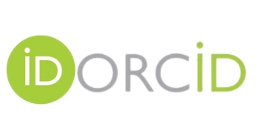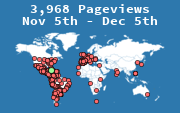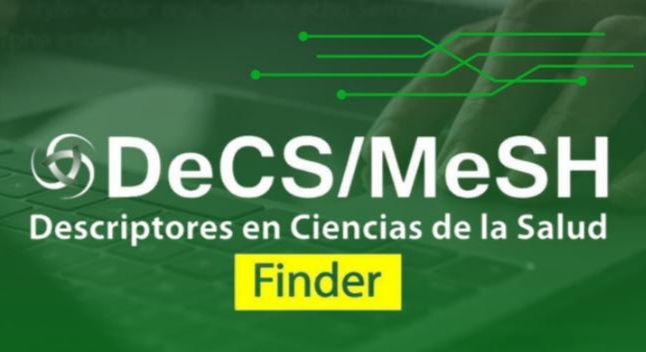The Virtual Health Classroom in the context of Higher Medical Education
Keywords:
virtual reality, libraries, digital, education, distance, universitiesAbstract
Introduction:
The new trends in Higher Medical Education demand the training of digital skills in teachers to face the requirements of new learning scenarios .
Objective:
To identify the level of knowledge and the use that the Medical Sciences teachers of Mayabeque make of the Virtual Health Classroom in the teaching-learning process.
Methods:
A descriptive and cross-sectional study was carried out at the Faculty of Medical Sciences of Mayabeque, from December 2021 to May 2022. The universe was of 485 teachers and by non-probabilistic, intentional sampling, by criteria; a sample of 223 was selected. To collect the information, a questionnaire was applied and a database was created. The statistical analysis consisted of a distribution of absolute and relative frequencies.
Results:
The average level of knowledge predominated in 78.47% of the teachers. 84.3% of teachers obtained knowledge of the Virtual Health Classroom through refresher courses and workshops offered by the Provincial Center for Medical Sciences Information and the Methodological Department. The frequency of using prevailed, sometimes, for 70.8 %. 49.3% of teachers agreed that the Virtual Health Classroom were useful and 50.7 % agreed that they were necessary in the teaching-learning process.
Conclusions:
Teachers have a medium level of knowledge of the Virtual Health Classroom, which is obtained through workshops and refresher courses and they use it only sometimes. Teachers rate it as useful or necessary in the teaching-learning process.
Downloads
References
Bernate JA, Vargas-Guativa JA. Desafíos y tendencias del siglo XXI en la educación superior. Rev Cienc Soc-Venez[Internet]. 2020 [citado 1 Jun 2023];26:141-54. Disponible en: https://produccioncientificaluz.org/index.php/rcs/article/view/34119.
Romero-López G. Nativos Digitales y Modelos de Aprendizaje. Pol del Conocim.[Internet]. 2022 [citado 05 jun. 2023:7(3). Disponible en: https://polodelconocimiento.com/ojs/index.php/es/article/view/3754.
García-Vélez KA, Ortiz-Cárdenas T, Chávez-Loor MD. Relevancia y dominio de las competencias digitales del docente en la educación superior. Rev Cubana Edu Superior[Internet]. 2021, [citado 1 Jun 2023]; 40(3):[aprox. 10 p.].Disponible en: http://scielo.sld.cu/pdf/rces/v40n3/0257-4314-rces-40-03-e20.pdf
Santos-Baranda J, López-Collazo ZS. Experiencias en el diseño de los entornos virtuales de enseñanza. aprendizaje en la Universidad Tecnológica de la Habana. Revista Estudios del Desarrollo Social: Cuba y América Latina[Internet]. 2021[citado 1 Jun 2023];9(3):e19. Disponible en: http://scielo.sld.cu/scielo.php?script=sci_arttext&pid=S2308-01322021000300019
Pichs-Herrera B, Ruiz-Ortiz L. La educación a distancia en la educación superior cubana. Estudio de matrícula y desarrollo en la formación de pregrado. SERIE [Internet]. 2020 Ene [citado 1 Jun 2023];13(3):76-9. Disponible en: https://publicaciones.uci.cu/index.php/serie/article/view/550
Olivares-Paizan G, Fernández-Villalón M, Ruiz-Marín E, Romero-Pardo G. La educación virtual en el contexto de la Educación Médica en tiempos de Covid-19. Amazonas [Internet]. 2022 [citado 1 Jun 2023];5(9):39-6. Disponible en: https://revistadelamazonas.info/index.php/amazonas/article/view/61
Resolución 47/2022 Reglamento organizativo del proceso docente y de dirección del trabajo docente y metodológico para las carreras universitariasGOC-2022-1133-O129. 19 dic. 2022[Internet]. Gaceta Oficial de la República de Cuba. 2022. Disponible en: https://www.gacetaoficial.gob.cu/sites/default/files/goc-2022-o129.pdf
Vialart-Vidal MN. Programa Educativo para el empleo de los entornos virtuales de enseñanza aprendizaje dirigido a los docentes de enfermería [Tesis para Optar por el Título de Doctor en Ciencias]. La Habana: Escuela Nacional de Salud Pública;2017 [citado 1 Jun 2023]. Disponible en: https://tesis.sld.cu/index.php?P=FullRecord&ID=710
Santalla-Corrales A, Sánchez-Capote H, Sánchez-Martínez A. Perspectiva de los estudiantes acerca de la importancia del uso del aula virtual de salud en tiempos de COIVD-19. Revista Científica Estudiantil UNIMED [Internet]. 2021 [citado 1 Jun 2023]; 3(2):[aprox. 12 p.]. Disponible en: https://revunimed.sld.cu/index.php/revestud/article/view/63
Álvarez-Benítez V. Utilización de los entornos virtuales de enseñanza-aprendizaje por los docentes de la carrera de Medicina. Maestro Y Sociedad [Internet]. 2021[citado 1 Jun 2023];18(4):1252-58. Disponible en: https://maestroysociedad.uo.edu.cu/index.php/MyS/article/view/5411
Montalvo-Vidal E, Ponce-Zerquera F, Ribot-Reyes V. El entorno virtual de enseñanza aprendizaje en la asignatura Medicina Legal y Ética Médica. Archivos del Hospital Universitario ¨General Calixto García¨. [Internet]. 2021 [citado 1 Jun 2023];9(2) Disponible en: https://revcalixto.sld.cu/index.php/ahcg/article/view/729
Díaz-Canel M, Fernández-González A. Gestión de gobierno, educación superior, ciencia, innovación y desarrollo local. Rev Retos[Internet]. 2020[citado 1 Jun 2023]; 14 (2):5-32. Disponible en: http://scielo.sld.cu/scielo.php?script=sci_abstract&pid=S2306-91552020000200005
Published
How to Cite
Issue
Section
License
Copyright (c) 2024 Yanet Damarys Acosta Perdomo , Norma Esther Álvarez Morales, Marta Rosa Sánchez Sigler , Indira Rodríguez Fernández

This work is licensed under a Creative Commons Attribution 4.0 International License.















 This site is licensed under a
This site is licensed under a